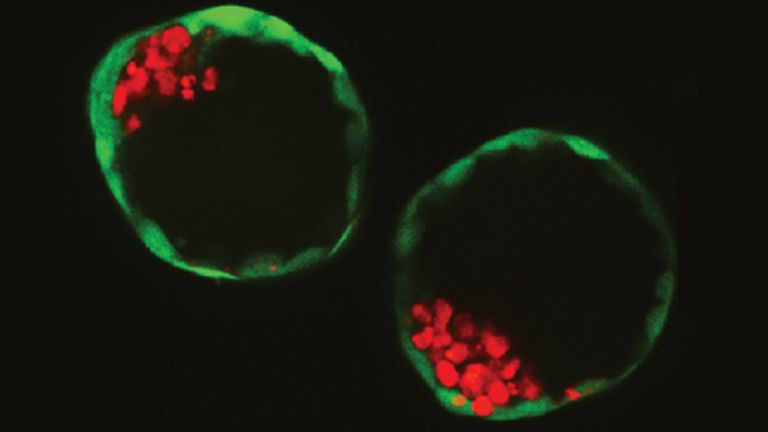Dutch scientists have created “synthetic” embryos in a laboratory using mouse cells. The experiment was not made for cloning people or animals, but to better understand why many pregnancies fail at the earliest stage of implantation.
The scientists made the embryos in a dish and attached them to the wombs of live female mice, which then grew for a few days. This could help in studying human fertility, the BBC reports.
Many miscarriages take place before a woman even knows she is pregnant, when a fertilized egg fails to attach or implant in the womb. Experts still don’t fully comprehend why this happens, though one primary reason could be abnormalities in the growing embryo.
Studying the development of early embryos is an ethical and scientific minefield. Therefore, using stem cells instead of sperm and eggs to build model embryos could provide the necessary resource for research.
Stem cells are immature cells that can grow into other types of cells in the human body during early life. Dr. Nicolas Rivron, from the Merlin Institute of Maastricht University, and his team, made the synthetic structures by putting together two types of stem cells from mice.
When observed under the microscope, the cells look identical to real early-stage embryos, with the same sphere-shaped cells that would usually become the placenta and baby.
While other scientists have created stem cell embryos for research before, this is the first time embryos have been successfully implanted in mice.
Rivron said,
We can now generate extremely large numbers of these embryos and study them in detail. It could help us understand why some embryos fail to implant and let us screen for drugs that might help with fertility.
There are no plans to repeat this procedure with human stem cells, as that would require a lengthy approval process and discussion.
The study was published in Nature.
























